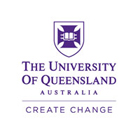Master of Mental Health
Master of Mental Health
Develop the practical experience, knowledge, skills and attitude you’ll need to thrive as a contemporary mental health professional. UQ’s mental health programs provide systematic training designed to develop knowledge, skills and attitudes relevant to contemporary mental health practice. You’ll receive advanced training in a variety of evidence-based interventions and the…
Categories
COURSE DESCRIPTION
Develop the practical experience, knowledge, skills and attitude you’ll need to thrive as a contemporary mental health professional.
UQ’s mental health programs provide systematic training designed to develop knowledge, skills and attitudes relevant to contemporary mental health practice. You’ll receive advanced training in a variety of evidence-based interventions and the theoretical principles that underpin them.
Teaching will be provided by highly experienced practitioners and researchers, many of whom have national or international reputations for scholarship and professional practice. You’ll have the opportunity to undertake both structured and independent learning assignments and study in a flexible environment that respects concurrent professional commitments.
This program is designed to meet advanced training standards for specialist mental health practice. Throughout the program, you’ll spend 800 hours in an appropriate practice environment, which can include your current workplace. You’ll also complete courses that will build and extend your knowledge and skills in mental health practice.
Art Therapy
Art therapy uses a combination of art activities and verbal interaction to support mental health by creating a positive environment for people and groups to express themselves through art.
Art therapy is not just a collection of techniques, but a planned intervention which attempts to create a safe environment for the client to express themselves.
Art therapy draws on psychodynamic theory, Jungian analytical psychology and developmental theory, cognitive and humanistic psychotherapies for its theoretical framework. It incorporates concepts about creativity as well as a range of contemporary therapeutic approaches and methods.
To meet ANZACATA and PACFA standards, you’ll need to complete at least 750 hours of art therapy placement during the program. The ongoing commitment is approximately 2 days per week each semester. You’ll also need to work with at least two different client groups throughout the program.
The Art Therapy field of study includes a compulsory 1 week residential full-time block of workshops. Remote students can attend weekly classes online with an art therapy tutor via Zoom.
We recommend that Art Therapy students have some experience of personal therapy, either prior to or during your Master of Mental Health – Art Therapy training. This enables you to become more aware of your personal motivation for becoming a therapist and to identify any potential areas of difficulty.
REQUIREMENTS
An approved degree in a health, social work or related discipline and have completed 1 year full time (or equivalent) work experience in a mental health setting or:
an approved degree in a different discipline and have completed 2 years full time (or equivalent) work experience in a mental health setting, or
Graduate Certificate or Graduate Diploma in Mental Health from this university and have completed 5 years full time (or equivalent) work experience in a mental health setting.
There are additional enrol requirements for the Psychotherapy and Art Therapy stream.
English Proficiency
IELTS overall 7; reading 7; writing 7; speaking 7; listening 7. For other English Language Proficiency Tests and Scores approved for UQ
TOEFL IBT – Overall 100, listening 25, reading 25, writing 27, speaking 23.
TOEFL PB – Overall 600, listening 59, reading 59, writing 64/6.
Pearsons – Overall 72, sub bands minimum 72.
CES – Overall 185, All sub bands minimum 185.
BEP and OET are not accepted.
EDUCATIONAL INSTITUTION
The University of Queensland (UQ) is in the world’s top 50 universities. It is internationally renowned for its academic excellence and is the winner of more national teaching awards than any other Australian university. UQ is a member of the Universities 21 and a founding member of the Group of Eight (Go8) universities and a member of Universities Australia. UQ is a multicultural hub home to nearly 20,200 international students from 142 countries. Based in Brisbane, UQ has three campuses with advanced facilities and centres to support its students.




